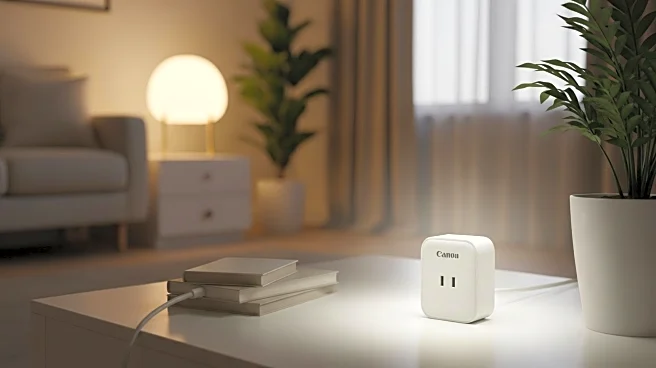What is the story about?
What's Happening?
Kasa Smart's mini smart plugs have gained popularity for their ability to transform ordinary outlets into automated smart ones. These devices, which connect via WiFi, allow users to control outlets through an app or voice assistant, offering convenience and energy savings. Former HuffPost senior editor Janie Campbell praised the plugs for their versatility, noting their ability to automate tasks such as controlling grow lights for houseplants or setting schedules for appliances while traveling. The plugs have been well-received by users, who appreciate their ease of setup and integration with systems like Alexa and Google Home.
Why It's Important?
The rise of smart home technology represents a significant shift in how consumers interact with their living spaces. Kasa Smart plugs offer an affordable entry point into home automation, making it accessible to a broader audience. This technology not only enhances convenience but also contributes to energy efficiency by allowing users to manage power consumption remotely. As smart home devices become more integrated into daily life, they have the potential to reduce energy costs and improve home security, benefiting both individual consumers and the environment.
What's Next?
As smart home technology continues to evolve, we can expect further advancements in device compatibility and functionality. Companies may develop more sophisticated automation features, enhancing user experience and expanding the range of applications. Additionally, the integration of smart plugs with other home systems could lead to more comprehensive smart home ecosystems, offering seamless control over various aspects of home management. Consumer demand for these technologies is likely to drive innovation and competition in the market.
Beyond the Headlines
The widespread adoption of smart home technology raises questions about data privacy and security. As more devices become interconnected, ensuring the protection of personal information will be crucial. Manufacturers and policymakers may need to address these concerns to maintain consumer trust and safeguard against potential cyber threats. Furthermore, the cultural shift towards automated living spaces may influence lifestyle choices, as individuals increasingly rely on technology to manage daily tasks.

















